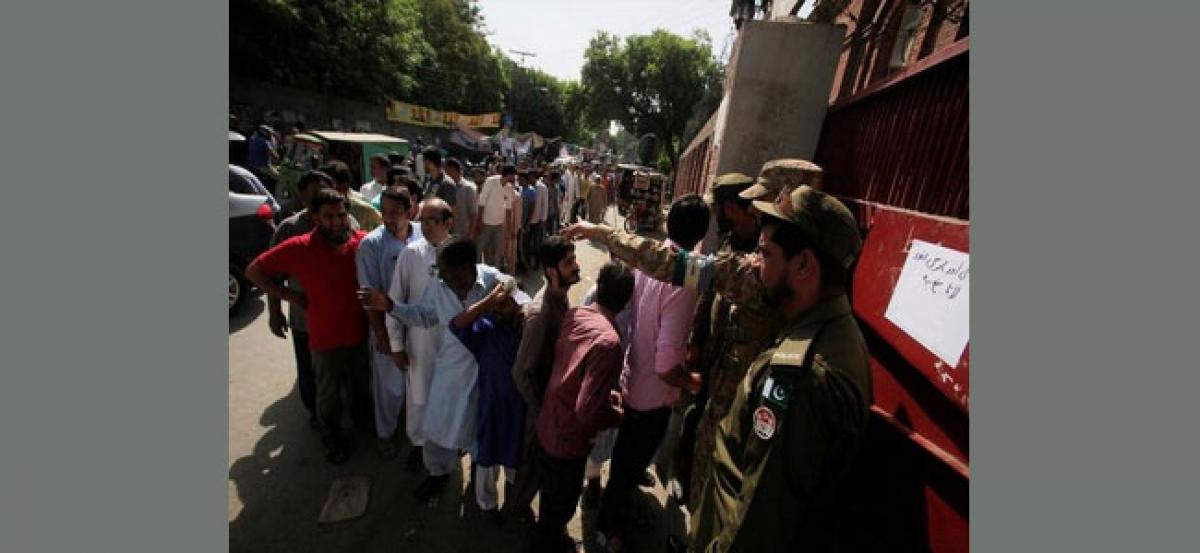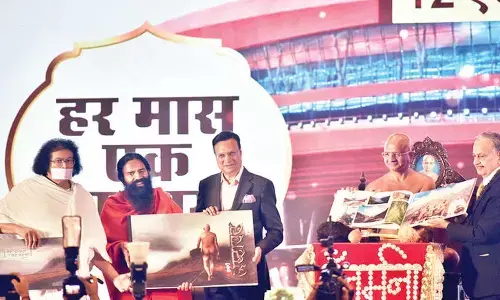Crackdown on Pak media is more than what meets eyes

With the general elections in Pakistan around the corner, the atmosphere of scrutiny being created by security establishments in the country is subtly paving the way towards a favourable outcomethe victory of Imran Khan, according to an article published on AlJazeera English website
Islamabad [Pakistan]: With the general elections in Pakistan around the corner, the atmosphere of scrutiny being created by security establishments in the country is subtly paving the way towards a favourable outcome--the victory of Imran Khan, according to an article published on Al-Jazeera English website.
In the run-up to the July 25 polls, Pakistan is witnessing a clampdown on the freedom of the Press in a move to silence the independence of the media, which can otherwise create a certain perception among the public.
The article highlights that the emergence of a wave of media establishments in the country has given birth to independent voices, which are capable of steering public opinion in a certain direction. This, in turn, has caused military to muzzle the media.
In May, the Government of Pakistan blocked further publication of The Dawn, one of the country's leading English dailies, for publishing an interview with the ousted prime minister Nawaz Sharif, where the latter had acknowledged that the terror attacks launched in Mumbai between November 26 and 29, 2008, were carried out by Pakistan-based terrorists.
In addition, the article, penned by noted journalist and rights activist, Gul Bukhari, said that the broadcast of Geo TV continues to be barred in certain pockets of the country.
These, the author believes, are being done to manoeuvre public opinion against Sharif's Pakistan Muslim League (PML-N) party and in favour of Imran Khan's Pakistan Tehreek-e-Insaf (PTI).
Pakistan has also witnessed a multitude of change on the political front, right from the time when Sharif stepped down as prime minister last year over the Panama Papers case. This, however, was just the beginning of a mission to weaken Sharif and prevent him from returning to a position of power, thereby stalling the passage of the 18th constitutional amendment, which was pepped up by the PML-N.
However, Bukhari argued that the amendment, enacted in 2010, has been "a thorn in the security establishment's side," as the direct intervention of the military in civilian affairs was nearly impossible, and funds available to the federal centre would be restricted, owing to the delegation of power and resources to the provinces.
However, the activist stated that to reverse the 18th amendment without throwing the country into political turmoil, the military would require a change in government.
"To make this a reality, it needs to sell a narrative," she noted.
While the portrayal of Nawaz as a dishonest politician seemed to fail in the larger context, his conviction in the Avenfield reference case, too, could not possibly weave the desired narrative, in favour of Imran Khan.
Nawaz and his daughter, Maryam, were greeted by scores of the PML-N workers upon their arrival to Lahore to serve their sentence, thus turning tables once again in favour of the father-daughter duo. Coupled with this, are the results of predictive polls, all of which are in favour of the PML-N.
"What we are witnessing in Pakistan at the moment is the first mass resistance to the military's political engineering attempts since East Pakistan seceded to become Bangladesh after the Pakistani army's bloody attacks on the Bengali population in 1971," said Bukhari.
However, whether the current situation will transcend into reality, is a test of time.




















